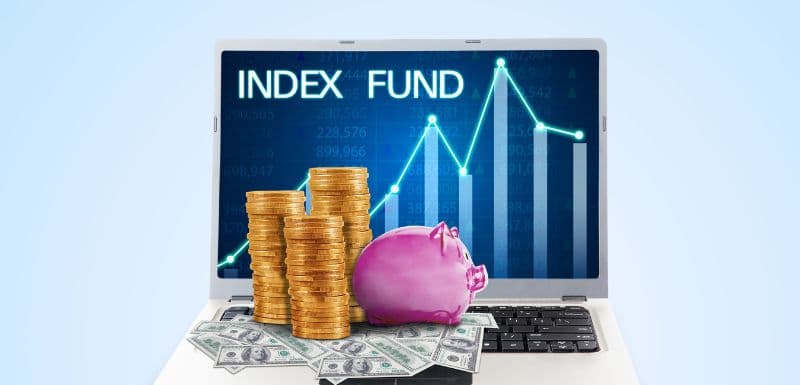Election Results Shock Markets: Does Asset Allocation Make Sense in Times Like These?

On 4th June 2024, the stock markets fell sharply in response to the election results. While the markets recovered over the next few sessions, days like these emphasise the importance building a diversified portfolio. In this article, we will discuss what is asset allocation, the types of asset classes and their role, and how having a diversified investment portfolio can give better risk-adjusted returns.
Let us start by summarizing what happened in the stock markets on 4th June.
What Happened on 4th June?
The BSE Sensex 30 Index fell by 4,389 points or 5.74% and closed at 72,079. Similarly, the Nifty 50 Index fell by 1,379 points or 5.93% and closed at 21,884. It was the biggest single-day fall in the last few years. The mid and small-cap indices saw even bigger cuts. Some sectoral indices, like the Nifty PSE Index, saw a double-digit fall, while some individual PSE stocks saw an intraday fall of more than 20%. Investors with all or most of their investments in equity with a concentrated portfolio saw their portfolio bleed.
What Is Asset Allocation?
Asset allocation is the process of allocating money towards various asset classes like equity, fixed income, gold, real estate, alternative investments, etc. The objective is to balance risks and returns. Diversifying across different asset classes reduces the risk and increases the probability of earning better returns. In short, asset allocation can help you earn better risk-adjusted returns.
Every asset class has a role to play in the overall portfolio.
1) Equity
Equity is for growth and wealth creation. Equity has the potential to give inflation-beating high returns. However, it comes with high risk and can be very volatile in the short term. However, with regular investments through the systematic investment plan (SIP) route, the volatility gets ironed out in the long run. Equity suits investors with an aggressive risk profile and a long-term investment horizon.
Equity can be further classified into domestic and international equity. India is one of the world's fastest-growing economies among major economies. Hence, investors should have appropriate investments in domestic equity through mutual funds to benefit from the long-term growth prospects of the Indian economy.
International equity can give investors a hedge against country-specific risks. It can give Indian investors an opportunity to invest in global companies not listed in the Indian market.
2) Fixed Income
Fixed income is for steady growth and overall stability. While equity can be volatile in the short term, fixed income is mostly steady, and hence, it can stabilise the overall portfolio. If the equity portion experiences a sharp fall, the fixed income portion can act as a shock absorber and cushion the impact of the equity fall on the overall portfolio.
Fixed income products can provide regular income in the form of interest from fixed deposits, corporate bonds, etc. A systematic withdrawal plan (SWP) can redeem debt fund units for a specified amount at a specified frequency (for example, monthly) and provide regular income.
3) Gold
Gold usually acts as a hedge against high inflation. During times of high inflation, the purchasing power of fiat currencies goes down. However, gold does well during such times and its value goes up.
Gold also acts as a safe haven during times of uncertainty. These include events like war, pandemic, political uncertainty, trade/tariff wars, economic sanctions, etc. For example, gold prices did well during events like the Russia-Ukraine war, Covid pandemic, demonetisation, etc.
4) Real Estate
Most people take exposure to real estate by buying a house property for staying in it. However, that house need not be included in your investment portfolio as you are not earning any rental income from it, nor will you sell it.
Any other investments in real estate through a residential or commercial property can be included in your portfolio. You can invest in real estate individually or with a group of people (fractional) through an intermediary platform or buy units of a real estate investment trust (REIT) listed on a stock exchange.
Asset Allocation – Is It Applicable to Everyone
In a cricket match, to win, you need a team that has a mix of good batsmen, bowlers, and fielders. Applying the same analogy to investing, to earn better risk-adjusted returns, you need a good mix of various asset classes.
While equities have done well in the long run, there can be short-term hiccups. For example, the more than 5% single-day fall in the Sensex 30 and Nifty 50 indices and an even bigger fall in the mid and small-cap indices on 4th June 2024. The sectoral indices, like the PSE index, saw a more than 10% fall, and some individual stocks fell more than 20% on that day.
If you have a concentrated portfolio, big falls can have a negative effect on your overall portfolio. It is a good thing that the overall markets recovered over the next few trading sessions. However, in the past, there have been times when markets have seen bigger corrections. For example, during the years 2008, 2016, 2020, etc., the markets saw a correction in the 10-50% range. Also, the markets stayed down for a longer time before recovering.
The question is, do asset allocation models provide opportunities for aggressive wealth creation. To understand this, lets differentiate between the terms Wealth Creation and Wealth Management. Wealth creation is achieved by an investing process that makes investment recommendations based on your investment horizon and hence investing in a staggered manner (SIP or STP) has the potential to create wealth in the long-term. The process involves setting aside portions of your monthly income to invest towards long-term goals and ultimately creating a substantial corpus by the end of the investing tenor. Wealth creation is about discipline and consistency and the fact that you keep investing systematically during market corrections turns out to be more beneficial in long run.
Wealth Management on the other hand, is applicable to the High Net worth segment with an existing corpus of maybe Rs. 10 crores and above. This is where an Asset Allocation model becomes relevant as the goal is to not only create optimal returns from the corpus but to also achieve a certain degree of capital preservation. For individuals falling in the category of HNIs, an appropriate asset allocation becomes relevant as correction in the equity market, is balanced by other asset classes in your portfolio that can be a stabilizing factor.
What Should Be Your Asset Allocation?
For retail investors with a small to medium-sized portfolio, you may allocate a major portion of your money to domestic equity mutual funds with a small allocation to low-risk funds. Your equity allocation should be directed towards long term goals and the low risk allocation in debt or arbitrage funds should be more towards an emergency corpus or funds needed in the near term.
While asset allocation involves allocating money to different asset classes, the proportion of funds to be allocated to each asset class will vary based on the risk appetite of individuals with larger portfolios. You may work with an investment expert who can help you with your appropriate asset allocation and build an investment portfolio based on your age, risk profile, financial goals and investment time horizon.
With the help of an investment expert, you should rebalance your portfolio regularly and create an asset allocation based on the stage of your goal achievement. With appropriate asset allocation and regular rebalancing, a big movement (on the upside or downside) in a particular asset class will not put at risk the corpus being created for a goal that is nearing completion. It will help you stay calm during the day, sound sleep at night, and the much-needed overall peace of mind.
Your Investing Experts
Relevant Articles
Election Results Shock Markets: Does Asset Allocation Make Sense in Times Like These?
On 4th June 2024, the stock markets fell sharply in response to the election results. While the markets recovered over the next few sessions, days like these emphasise the importance building a diversified portfolio. In this article, we will discuss what is asset allocation, the types of asset classes and their role, and how having a diversified investment portfolio can give better risk-adjusted returns.
Gold Prices Have Hit an All-Time High: What Is Driving the Rally, and Should You Invest?
The financial year 2023-24 was one of those rare years when most asset classes did well. Equities gave good double-digit returns. The interest rates on many fixed-income products, like bank fixed deposits, corporate bonds, etc., were at multi-year highs. Gold also did well on the back of high inflation, geopolitical instability, etc.
The Microcap Index Was the Best-Performing Index in 2023-24: Should You Invest in It?
In FY 2023-24, the Nifty Microcap 250 Index gave a whopping 85.12% returns. It was the best-performing index in FY 2023-24 amongst broad market capitalisation indices. In this article, we will understand what is Nifty Microcap 250, how it has performed, how much you should allocate to it, and how to invest in it.


